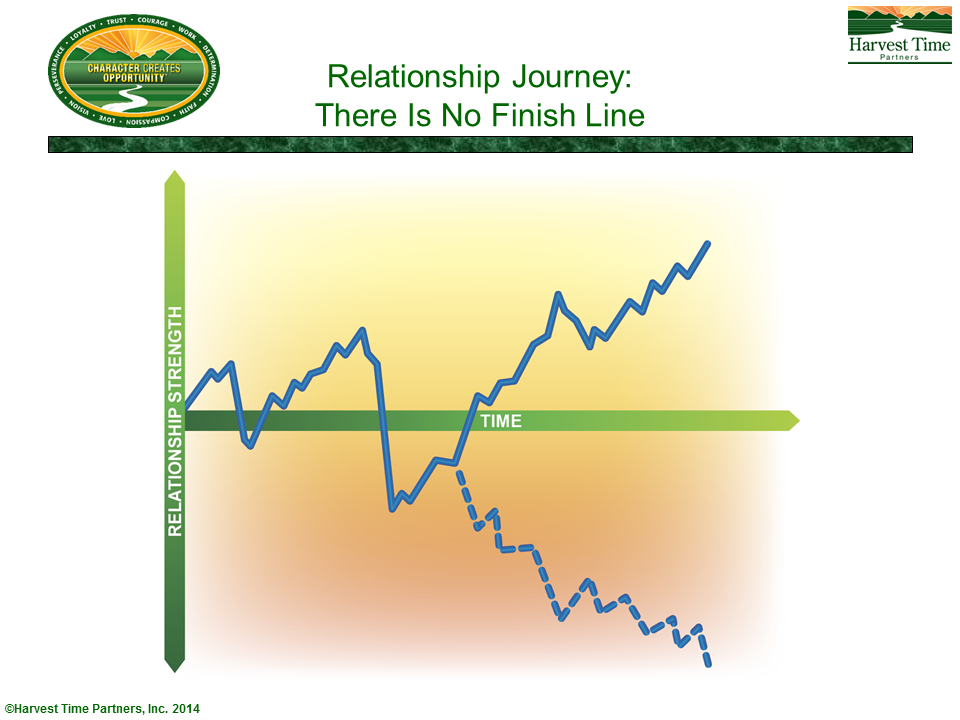Analysis-Paralysis is a common phrase describing the grind that goes on with over analyzing a situation so that a decision or action is never taken, or taken so late, it misses the intended opportunity. The first time I heard a similar expression – “He who hesitates is lost, Esposito!!”- I was a stutter stepping tailback trying to find an open hole in the defense to gain a few yards.
There is a cost to indecision and hesitation.
In organizations, families, and on the individual level, the cost is somewhat the same:
(1) Missed Opportunity. We miss the chance to capitalize on an opportunity. Whether it is a business deciding to acquire a new technology or a spouse deciding “the right time” for an important conversation, the window of opportunity closes pretty fast around the things that matter most.
(2) Drain on Energy. We spend a great deal of physical and emotional energy in the continual cycle of debate, discussion, analysis, and hidden agendas, that when we finally make a decision, we have limited energy to execute on it.
(3) Failure to learn. Benjamin Franklin once said, “The things which hurt, instruct.” In not making a decision, many times we postpone relevant learning and personal growth.
In an effort to encourage more efficient decision making, it is important we face a few realities: In the complexity of life, we rarely have all the necessary information, the facts are not always gathered, and quite often there is not a clear cut answer. Regardless, the situation still demands a decision and an action. If the decision is pretty straight-forward, then we better get in the habit of making them quickly and spending our effort in adding value in more complex areas otherwise we risk being replaced by a computer with an algorithm in work or becoming irrelevant in the home.
In the complexity of life, we rarely have all the necessary information, the facts are not always gathered, and quite often there is not a clear cut answer. Regardless, the situation still demands a decision and an action. If the decision is pretty straight-forward, then we better get in the habit of making them quickly and spending our effort in adding value in more complex areas otherwise we risk being replaced by a computer with an algorithm in work or becoming irrelevant in the home.
Assessing the complex situations and making the tough decisions is what we get paid to do in the workplace and what we are called to do as parents or guardians.
Here are a few suggestions to support and encourage decisiveness in our lives:
(1) Don’t wing it. That may sound counter to the above comments, but when we just “go with our gut,” we run a big risk of becoming “extinct by instinct.” We have a responsibility to be intentional with our effort and that requires thought to determine direction. Winging it is not responsible behavior with respect to the important things in life.
(2) Alignment. Our first checkpoint should be to ensure a potential decision aligns with our intent (insert whatever descriptor you wish to use: mission, purpose, core values, principles, etc.). If a potential decision causes us to compromise our intent, we should quickly and clearly make our “NO” really mean “NO” and move on.
(3) Sooner rather than later. Through a fair amount of very personal one on one discussions with individuals around issues in the workplace or in the home, combined with my own journey in the workplace and at home, most of us “shuffle our feet” too long in the grey zone of “maybe” or “someday” instead of YES or NO today. For the things that matter most, our organizations and our families will be better off with a YES or a NO rather than a “maybe” or a “someday.”
“It is not the critic who counts; not the man who points out how the strong man stumbles, or where the doer of deeds could have done them better. The credit belongs to the man who is actually in the arena, whose face is marred by dust and sweat and blood; who strives valiantly; who errs, who comes short again and again, because there is no effort without error and shortcoming; but who does actually strive to do the deeds; who knows great enthusiasms, the great devotions; who spends himself in a worthy cause; who at the best knows in the end the triumph of high achievement, and who at the worst, if he fails, at least fails while daring greatly, so that his place shall never be with those cold and timid souls who neither know victory nor defeat.” Theodore Roosevelt
As we efficiently step up and make decisions to get “in the arena” of life, we will build and strengthen our character and Character Creates Opportunity® to reach out full potential.


 #2 As Winston Churchill said, “When you are going through hell, keep going.” What may seem like a living hell will come at some point in close relationships. We all wish it was not true, but the reality is that we, at some point in our closest relationships, will all experience that dark point of feeling the relationship has reached a permanent breaking point. The most effective way through the struggle and into better times, is to maintain the discipline to give rather than focus on ourselves and what we are not receiving. It is not easy in the challenges of a marriage, of dealing with a “prodigal” son or daughter, or a difficult, unfair boss, but maintaining the discipline to give in those toughest of times, will continue to build a defense against depression and anger to return a positive impact.
#2 As Winston Churchill said, “When you are going through hell, keep going.” What may seem like a living hell will come at some point in close relationships. We all wish it was not true, but the reality is that we, at some point in our closest relationships, will all experience that dark point of feeling the relationship has reached a permanent breaking point. The most effective way through the struggle and into better times, is to maintain the discipline to give rather than focus on ourselves and what we are not receiving. It is not easy in the challenges of a marriage, of dealing with a “prodigal” son or daughter, or a difficult, unfair boss, but maintaining the discipline to give in those toughest of times, will continue to build a defense against depression and anger to return a positive impact.
 I learned a great deal about myself and a great deal about leadership, courage, strategy, and tactics. When I reflect back on the most significant learning, it was quite simple; the importance to just keeping moving forward. Whether tired, scared, or confused, just keep moving forward toward your objective. As an infantryman, with a heavy pack, leading a platoon of soldiers, the pressing call was always to keep moving forward toward the objective. Whether it was to complete a long, difficult road march, a specific tactical scenario that needed to be mastered in total darkness, or whether it was securing an objective on the battlefield in Iraq. No matter the ups and downs in that pursuit, there was a clear calling to just keep moving forward no matter what came our way.
I learned a great deal about myself and a great deal about leadership, courage, strategy, and tactics. When I reflect back on the most significant learning, it was quite simple; the importance to just keeping moving forward. Whether tired, scared, or confused, just keep moving forward toward your objective. As an infantryman, with a heavy pack, leading a platoon of soldiers, the pressing call was always to keep moving forward toward the objective. Whether it was to complete a long, difficult road march, a specific tactical scenario that needed to be mastered in total darkness, or whether it was securing an objective on the battlefield in Iraq. No matter the ups and downs in that pursuit, there was a clear calling to just keep moving forward no matter what came our way.

